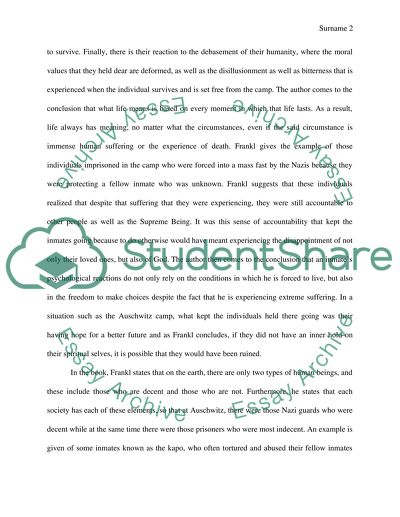Cite this document
(“Man's Search for Meaning By Viktor E. Frankl Book Report/Review”, n.d.)
Retrieved from https://studentshare.org/philosophy/1627881-mans-search-for-meaning-by-viktor-e-frankl
Retrieved from https://studentshare.org/philosophy/1627881-mans-search-for-meaning-by-viktor-e-frankl
(Man'S Search for Meaning By Viktor E. Frankl Book Report/Review)
https://studentshare.org/philosophy/1627881-mans-search-for-meaning-by-viktor-e-frankl.
https://studentshare.org/philosophy/1627881-mans-search-for-meaning-by-viktor-e-frankl.
“Man'S Search for Meaning By Viktor E. Frankl Book Report/Review”, n.d. https://studentshare.org/philosophy/1627881-mans-search-for-meaning-by-viktor-e-frankl.


